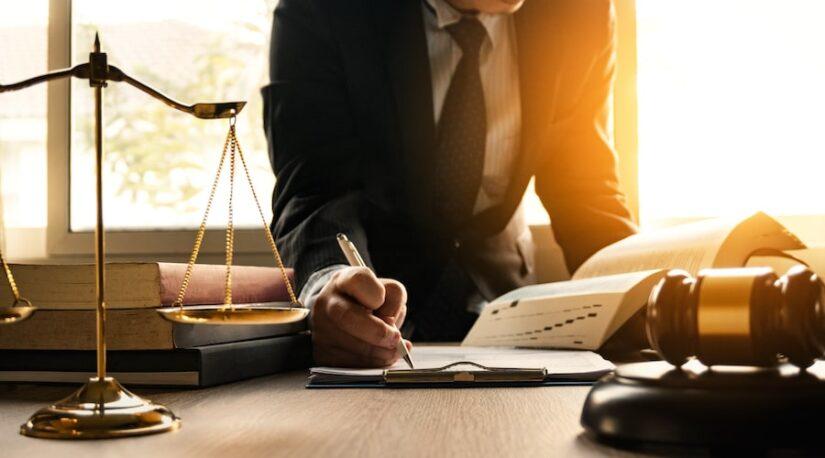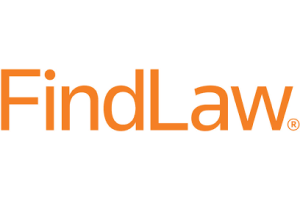as a Consumer
Expecting a Repossession
Navigating Repossession: What to Know if You Are Expecting a Repossession
Experiencing the looming threat of car repossession if you are behind on your car loan or suffering other financial hardship is a distressing journey, shadowed by the possibility of losing a crucial means of mobility due to missed car payments. The weight of uncertainty and the impending repossession can be overwhelming, amplifying the stress in an already challenging situation. In these moments, understanding the car repossession process is critical.
Car repossession isn’t merely a transactional event; it’s a legal process laden with complexities and implications. It’s the culmination of financial strains such as missed car payments and a delinquent car loan colliding with legal frameworks, impacting one’s daily life profoundly. The prospect of relinquishing a mode of transportation, pivotal for livelihood and routine, can breed profound anxiety and uncertainty about the future. This is true for both involuntary repossession as wel as voluntary repossession.
Navigating these tumultuous waters requires a comprehensive understanding—a grasp of not just the procedural steps but also the emotional and financial ramifications. It’s about recognizing the warning signs, understanding legal rights, and exploring available alternatives to potentially avoid or mitigate the negative effects if your car is repossessed . If you think your repo rights were violated during an involuntary repossession contact Thompson Consumer Law Group for a free no obligation analysis of your situation.
Understanding car repossession by mistake involves deciphering the lender’s actions, deciphering legal communications, and weighing potential repercussions. It’s about recognizing when missed auto loan payments transform into substantial threats, sparking a chain of events that might result in a repossessed car.

However, in these challenging times, there’s a glimmer of hope—a chance to chart a course through this storm. Knowledge becomes a lifeline. Identifying the early signs, understanding the timeline, preparing for the possibilities, seeking professional guidance from experienced consumer rights lawyers, and exploring alternative solutions form a comprehensive strategy.
What is Repossession?
Repossession epitomizes a legal recourse exercised by lenders when borrowers default on payments for their car loans. It transcends the mere act of reclaiming a vehicle; it’s a multifaceted process governed by stringent legal frameworks and financial intricacies.
At its core, repossession serves as the mechanism for lenders to reclaim the collateralized asset—commonly cars, trucks, motorcycles, or any financed vehicle—when borrowers fail to meet their financial obligations. The lender holds a legal interest or lien on the vehicle, making it collateral against the car loan. When the borrower defaults on payments, breaching the loan agreement, the lender can lawfully initiate car repossession proceedings and damage your credit history.
This process typically commences after a series of missed payments or when the borrower consistently fails to adhere to the agreed-upon terms. The lender exercises its rights as stipulated in the loan agreement and pertinent state laws to retrieve the vehicle, aiming to recoup the outstanding debt.
However, that your car is repossessed doesn’t equate to the end of financial obligations for the borrower. Post-repossession, the lender usually auctions the vehicle to recover the remaining balance of the loan and the lender’s repossession expenses. In most cases, the auctioned price for the repossessed car might not cover the entire outstanding debt, leaving the borrower liable for the deficiency balance which can negatively impact your credit report. This adds another layer of financial strain, compounding the challenges already faced.
Understanding repossession extends beyond the physical act of reclaiming the vehicle. It encompasses legal intricacies, varying state laws, and potential financial implications for the borrower. Each state delineates specific guidelines governing the repossession process, detailing the rights and responsibilities of both the lender and the borrower. These statutes dictate aspects like notification requirements, repossession agents’ conduct, and the borrower’s rights during and after repossession. If you think your eights were violated during any part of the repossession process, contact Thompson Consumer Law Group for a free no obligation case review.
For individuals facing repossession, comprehending these legal intricacies becomes pivotal. It empowers borrowers to navigate the process with a clearer understanding of their rights and potential outcomes. Furthermore, it underscores the importance of seeking legal counsel experienced in repossession laws to advocate for the borrower’s rights and potentially negotiate favorable resolutions with the lender.
Early Warning Signs of Repossession
Recognizing the initial indicators of potential repossession is pivotal, serving as a beacon to alert borrowers about imminent financial jeopardy. These signs manifest as persistent red flags, warning of the impending risk of losing a valuable asset—often the sole mode of transportation for many.
Communication from the lender acts as the first harbinger of trouble. The lender’s persistent attempts to contact the borrower through calls, letters, or emails indicate concerns regarding the repayment schedule and loan balance. These communications might escalate in frequency and urgency as missed payments accrue.
Missed or consistently late payments on the auto loan serve as pivotal signals. Even a single missed payment can set off a chain of events, triggering the lender’s concern about the borrower’s ability to fulfill the loan agreement. The borrower’s failure to adhere to the agreed-upon repayment schedule signals financial strain or a shift in circumstances.
Receiving warning letters or notices of default is another substantial indicator of impending repossession. These formal communications outline the borrower’s breach of the loan agreement, citing missed payments and the potential consequences, including repossession. Such letters often delineate a timeline for the borrower to rectify the delinquency before repossession proceedings escalate.
Alterations in loan terms or agreements could also signify an impending threat of repossession. Any modifications initiated by the lender—such as increased interest rates, changes in payment schedules, or demands for immediate full payment—serve as distress signals, potentially placing further strain on the borrower’s financial stability.
It’s imperative for borrowers to heed these warning signs and take proactive measures. Ignoring these indicators may exacerbate the situation, hastening the repossession process. However, swift action can potentially mitigate the risk and offer opportunities to negotiate with the lender, explore alternative repayment plans, or seek professional legal assistance.
Furthermore, these warning signs serve as a clarion call for borrowers to examine their financial standing critically. Engaging in comprehensive financial assessments, including evaluating income sources, prioritizing essential expenses, and seeking financial counseling, can equip borrowers to navigate this turbulent period more effectively.
The Timeline of Repossession Process
Understanding the chronological sequence in repossession delineates the progression from initial missed payments to the potential culmination in repossession. This process is not immediate; it evolves gradually, presenting borrowers with opportunities to address the issue before repossession becomes inevitable.
The process typically commences when the borrower falls behind on payments. Initial missed payments trigger the lender’s concerns, prompting them to reach out to the borrower through calls or correspondence. At this stage, the lender aims to rectify the delinquency and prevent the situation from escalating to repossession.
Continued delinquency escalates the lender’s concern. The borrower receives notices or letters of default, formal communications outlining the breach of the loan agreement and its potential consequences, including repossession. These notices often provide a grace period or a timeline for the borrower to rectify the delinquency before repossession proceedings intensify.
If the borrower fails to remedy the situation or establish communication with the lender, repossession becomes a looming reality. The lender, acting within the bounds of state laws and the loan agreement, initiates repossession proceedings. This might involve employing a repossession agency or agent to locate and retrieve the vehicle.
Once the Vehicle Is Repossessed
The lender aims to mitigate financial losses by auctioning the vehicle. However, the auctioned price might not cover the entire outstanding loan balance, leaving the borrower liable for the deficiency balance. This additional financial burden compounds the challenges already faced due to missed payments and repossession.
It’s crucial to note that state laws govern the repossession process, outlining specific guidelines and regulations. These laws detail requirements such as notification protocols, restrictions on repossession agents’ conduct, and the borrower’s rights during and after repossession. Understanding these statutes equips borrowers with knowledge about their rights and potential courses of action.
Throughout this timeline, borrowers possess opportunities to intervene and potentially avert repossession. Engaging in proactive communication with the lender, exploring alternative repayment plans, seeking legal counsel, or understanding their rights under state laws can offer avenues to negotiate and potentially prevent repossession.

Navigating the timeline of repossession isn’t just about the progression of missed payments; it’s about recognizing pivotal moments for intervention. Each stage presents an opportunity for borrowers to engage, seek assistance, or negotiate, potentially altering the trajectory and mitigating the dire consequences of repossession.
Preparing for Repossession
Facing the specter of impending repossession demands meticulous preparation and strategic planning. While repossession might seem inevitable, taking proactive measures can mitigate its impact and potentially offer avenues to navigate through this challenging period.
1. Open Communication with the Lender:
Initiating transparent and proactive communication with the lender is the cornerstone of preparation. Engaging in dialogue to explore potential repayment options, negotiate modified payment plans, or seek refinancing possibilities demonstrates a commitment to addressing the issue and potentially finding alternatives to repossession.
2. Document All Interactions and Payments:
Maintaining comprehensive documentation of all communications and payments made is crucial. Keep records of correspondence with the lender, including dates, times, and details of conversations. Additionally, retain receipts or proof of any payments made, creating a paper trail that could serve as valuable evidence or support if legal proceedings arise.
3. Assess Financial Situation and Prioritize Expenses:
Conducting a thorough assessment of the financial situation is imperative. Evaluate income sources, essential expenses, and discretionary spending to understand where adjustments can be made. Prioritize essential expenses, such as housing, utilities, and food, allocating resources to cover these necessities to prevent further financial strain.
4. Explore Alternative Financial Solutions:
Exploring alternative financial solutions can offer potential avenues to address the delinquency. Consider options such as debt consolidation, seeking refinancing with improved terms, or seeking assistance from credit counseling services. These measures aim to alleviate financial pressure and potentially restructure debts in a more manageable way.
5. Understand State Laws and Borrower Rights:
Acquainting oneself with state laws governing repossession and understanding borrower rights is empowering. State statutes outline specific guidelines, including notification protocols, repossession procedures, and borrower protections. Understanding these laws provides insight into potential courses of action and safeguards against potential violations by the lender. Contact a repo rights lawyer if you think you have been the victim of a wrongful repossession.
6. Seek Legal Counsel or Professional Guidance:
Engaging legal representation specialized in repossession laws or seeking advice from financial advisors can provide invaluable support. A repossession rights lawyer can explain legal rights, negotiate with lenders on behalf of the borrower, and ensure fair treatment throughout the process.
7. Prepare for Post-Repossession Recovery
Anticipating life post-repossession is essential. Remove personal property from the vehicle before repossession occurs, preventing any potential loss of essential items. Focus on rebuilding credit, exploring alternative transportation options, and formulating a plan for financial recovery after repossession to regain stability.

Preparation for repossession isn’t solely about bracing for the eventuality; it’s about actively engaging in measures to potentially alter its course. Each step taken proactively contributes to a comprehensive strategy aimed at navigating through this challenging period with greater resilience and preparedness.
Alternative Solutions to Repossession
Efforts to circumvent repossession encompass diverse strategies. Negotiating modified payment plans, seeking refinancing with improved terms, considering debt consolidation, or seeking guidance from financial advisors or credit counselors are viable routes. These measures aim to effectively manage debts and minimize the risk of repossession.
The Importance of a Repossession Rights Lawyer
Navigating the intricate legal landscape of vehicle repossession demands specific experience and advocacy. A vehicle repossession lawyer plays a pivotal role in safeguarding the borrower’s rights, providing invaluable guidance, and advocating for a fair resolution amidst the complexities of repossession proceedings. If you think your repo rights were violated contact Thompson Consumer Law Group for a free no obligation analysis of your situation.
1. Understanding Legal Rights:
One of the primary roles of a consumer repossession lawyer is to elucidate the borrower’s legal rights in the repossession process. They possess a comprehensive understanding of repossession laws, including state-specific statutes and regulations governing the process. This knowledge empowers borrowers, ensuring they comprehend their rights and potential courses of action.
2. Identifying Legal Violations:
Repossession lawyers for consumers possess a keen eye for potential legal violations by lenders. They scrutinize loan agreements, repossession notices, and communications to identify any discrepancies or violations. In case of unlawful practices or breaches of the borrower’s rights, the lawyer can take legal action to remedy the situation.
3. Mitigating Further Legal Consequences:
Engaging a repossession lawyer early in the process can potentially prevent further legal consequences. Their intervention and negotiation may lead to agreements that prevent repossession or reduce the borrower’s liability for deficiency balances after the vehicle’s auction. This can mitigate potential legal actions or financial burdens post-repossession.
Engaging a vehicle repossession lawyer isn’t just about legal representation; it’s about safeguarding rights, leveraging expertise, and potentially altering the trajectory of repossession proceedings. Their role extends beyond legal counsel; they serve as advocates, empowering borrowers to navigate through repossession proceedings with guidance, protection, and a pathway toward potential resolution.Navigating vehicle repossession is undoubtedly challenging, yet understanding warning signs, exploring alternatives, and seeking legal assistance are pivotal. At Thompson Consumer Law Group, owe can provide guidance and legal support during these challenging times. Reach out for a free repo rights case review to protect your rights and explore viable solutions tailored to your repossession situation.







